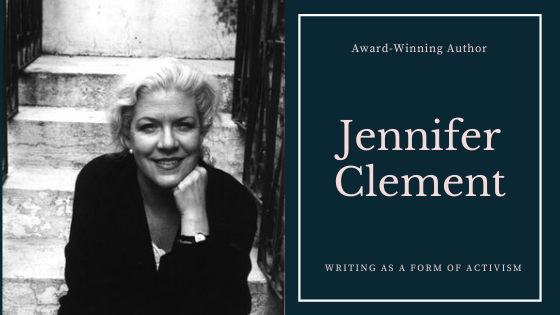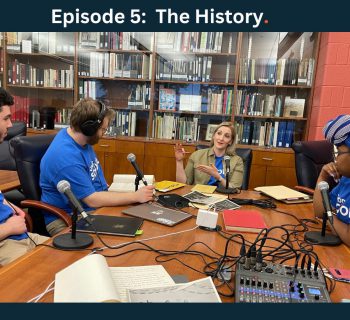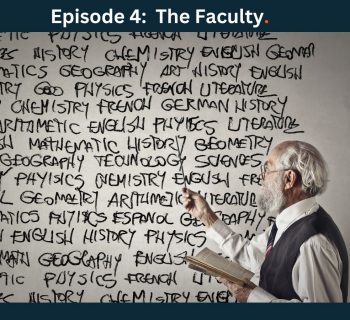Paige Passantino
CCBC’s Community Book Connection (CBC) started off the spring semester (2020) with a diverse set of culturally engaging events ranging from theatre, storytelling, music, and poetry performances to academic panels. Given the global pandemic, many of these events were postponed, transitioned to online formats, or cancelled.
However, the CBC has pushed through this time of social distancing, aiming to maintain connection with the college community. This group of dedicated faculty and staff continues to explore the incredibly important intersection of storytelling and social awareness.
This past week, Professor Kim Jensen’s English 102 Class had a very special guest, Jennifer Clement, author of “Prayers for The Stolen,” which was our community book for the 2015-2016 academic year.
The original festival “No Borders, No Walls: Women|Writing|Resistance,” was designed to highlight women poets and novelists who use language to interrogate the real and ideological borders and boundaries that are ingrained in the fabric of social and political institutions. American-Mexican author, Jennifer Clement has done just this in her many novels, poetry collections, and in her work as a social justice advocate.
Jennifer Clement is the author of four novels, including “Gun Love”, “Prayers for the Stolen,” and “A True Story Based on Lies,” one of which has been adapted into an upcoming film produced by the same team behind the Oscar winning Roma. Clement is also the first woman president of the 100-year old organization, PEN International. She describes PEN as an organization of writers world-wide who “believe deeply in the power of literature, telling stories to create social change.”
During the interactive zoom class session that was open to the CCBC Community, Clement spoke on themes of social justice, inequalities, the writing process, and seeing her beloved characters have their voices heard.
Clement opened the discussion with some great examples of novels that yielded powerful social results. She cited “Oliver Twist” as a ground-breaking social novel that resulted in a change in child labor laws. She argued that Jane Austen was influential in the shift in property rights for women. Victor Hugo’s “Les Misérables” indelibly altered the French perception of the poor.
In her talk, Clement also mentioned “The Plague” by Albert Camus, a novel many are reading now as a parallel to our current state of isolation. She detailed how another piece by Camus, an essay entitled “The Rebel,” was paramount in her development as a writer, saying, “It made me understand I could be a rebel as an artist.” She went on to do that-- writing books such as “Gun Love,” which explores the relationship between the U.S. gun industry and violence in Mexico.
Her novel and CBC selection “Prayers for the Stolen” tells the story of Ladydi, a young girl living in the rural mountainside of Guerrero, Mexico - a place where it is dangerous to be a woman. The stories of Ladydi, her mother, and her friends, shone a glowing light on the harsh reality of sex trafficking taking place across the American Mexican border. The novel is painfully beautiful, written like poetry.
In the Zoom session, Clement explained that this was a purposeful stylistic choice. “How can I write about such dark things with poetry?” She asked herself. “How can I make language my salvation?”
Thinking in this way led her to making a deliberate choice to not describe such horrific violence in cold, clinical terms, but instead providing beautiful metaphors as a tool to bring readers closer to the characters, fostering a more intimate connection.
After the novel was released, Clement was invited to the U.S. Congress to participate in discussions about human trafficking. She described this experience as very moving because her characters were being discussed almost as real people, as true examples of the social injustices taking place in the real world.
This eye-opening session was full of insightful questions from students and a reflective discussion, ending with a “Persona” prompt given to students by Clement as a writing exercise: Write outside of yourself, from the perspective of someone completely different than yourself, and see where this takes you.
It was a pleasure and an honor to have the opportunity to listen and learn from such a renowned author, advocate, and public figure.
The Community Book Connection will host a second “No Borders, No Walls” Zoom session on Tuesday, May 12 at 6:15 pm with the Indigenous-Mexican poet Judith Santopietro and her translator Ilana Luna. They will read, present work from Santopietro’s latest book: Tiawanaku: Poems from the Mother Coqa. All members of the CCBC community are invited to log in and join the conversation at this link: https://us02web.zoom.us/j/182875639















Wow I am so sad I missed this. Reading and writing truly has the power of revolution! Knowledge is power after all. I believe using meatphors instead of describing things graphically is a great was to keep people engaged.